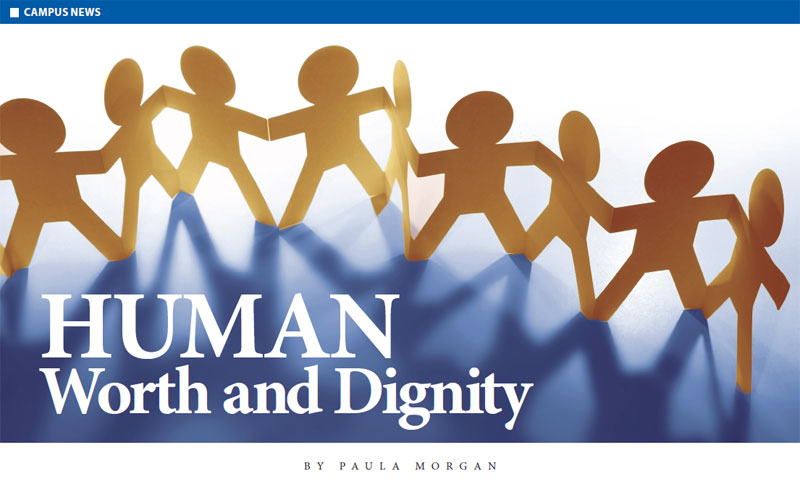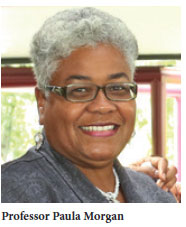
 Notions of human worth and dignity have a long history. They are socially contextualized, evolving concepts which are being negotiated daily. That these concepts are embraced so passionately within diverse cultures and multiple generations, tells us something about the nature of the human. Within all facets of our social order – from the state authorities who dispense national awards, to the gang members who would kill over a “dissing” – concepts of worth and honour assume extreme significance. Notions of human worth and dignity have a long history. They are socially contextualized, evolving concepts which are being negotiated daily. That these concepts are embraced so passionately within diverse cultures and multiple generations, tells us something about the nature of the human. Within all facets of our social order – from the state authorities who dispense national awards, to the gang members who would kill over a “dissing” – concepts of worth and honour assume extreme significance.
In western world views, dignity has been associated with conferring autonomy. To treat persons and nations with dignity then is to treat them as autonomous and capable of choosing their own destinies. In eastern world views, the honour of the collectivity, takes precedence over the autonomy of the individual. Each focus has implications for how we live as individuals and as a community.
Societies have derived their sense of human worth and dignity from value of the individual within primary social institutions: the family, the community, workplace, the place of worship and the nation. And yet, arguably human life and personhood are interdependent; the value of the human extends beyond the sum of her parts. Moreover human worth transcends the confines of a fit and vigorous body, the prowess of a beautiful mind, and the yearnings of an adventurous soul.
Within each individual, there are facets and synergies which go beyond the sum of individual parts and bring value added. And this increases exponentially when we bind ourselves into collectivities – families, communities and organizations, researchers and activists working for a cause. Together, we magnify our capacities, are fortified by our complementarities, and even our shortcomings and weaknesses. Together we are stronger, accomplish more; travel further. We therefore owe each other the duty of care encapsulated in the saying: “until all have crossed none have crossed and some we have to carry.”
Synergies between the individual and group enhance the worth and dignity of all. Consider the commonly accepted notion that a group or a nation can be bounded together by such commonality, that all member share common value and honour. Simple country lads evolve from throwing coconut branch spears on the beach or playing with homemade crickets bats into Olympic athletes. In the process they enhance collective worth and opens potentialities and pathways to every other boy whose immediate resources do not extend much beyond articles of everyday use – bits of scrap wood, fallen coconut branches and discarded oil drums.
I reap the benefit.
My heart swells with pride when I listen to steel pan on the street in Korea and when I introduce myself as a Trinidadian to a stranger in Holland, who responds with a twinkle in the eye: “You come from Brian Lara country.” My worth has been boosted by connection to world class sports men and musicians whom I have never met and whose skills and accomplishments I can never match. Trust me on this one.
Similarly as a member of the family, community or nation, I stand to be devalued based on the dishonorable actions of one. The bottom line is we share a collective responsibility for the worth and dignity of all.
Dynamic notions of human worth and dignity play themselves out in a multiplicity of ways. The Institute for Gender and Development Studies (IGDS) recently collaborated with the Food and Agriculture Organization and UN Women to mount a regional workshop to develop a programme of work and to build public policy for rural women in agriculture in the Caribbean. The dignity and value of these farmers shone as they testified of challenges, adversities and hard won victories. They spoke with pride of incredibly long working hours, training their children from infancy to grapple with the land and wrestle a yield from it. Their sacrifice and diligence were inspirational. Their dignity and worth to their nations is unparalleled.
Consider a different scenario. Why do women weep violently when they lose their children who have become both perpetrators and victims of violent crime? It is because within the most antisocial and destructive of humans there exists inherent worth and the potential for beauty and order and redemption. Why do families deeply mourn the passing of physically and mentally disabled relatives? The value of the human transcends physical and mental capacity, just as it transcends seasons of social usefulness. The IGDS is currently engaged in a study of work life balance and the ageing. The research team is impressed continually with the preciousness of each person struggling to retain dignity in the face of compelling work and care demands, ageing and failing mental and bodily functions.
One can conclude then that human worth and dignity in their diverse meanings and manifestations are pivotal to life itself. They bring value to troubled existence and lend a meaning to toil and adversity. They confer significance on our accomplishments and victories and then some more. The centrality of human dignity and worth ultimately speaks to a straining towards eternality, a conviction of significance beyond this life, with its extremes of adversity and brutishness, joy and accomplishment.
Professor Paula Morgan is Head of the Institute for Gender and Development Studies at UWI St. Augustine. This is from her presentation at the International Conference on Social Work Education and Social Development: “Promoting Human Worth and Dignity: Social Work and Social Development in Trinidad,” on March 16, 2016.
|





